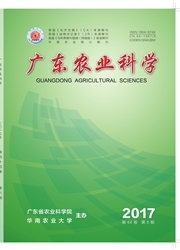

 中文摘要:
中文摘要:
适度规模家庭农场是粮食生产可持续发展的必然选择,但目前家庭农场属于探索阶段,金融政策支持显得尤其重要。以江西省粮食主产区5县(区)114个家庭农场(样本农户)的调查资料为依据,根据以往相关研究和专家经验甄选出14个自变量作为影响因素,运用二元Logistic模型针对政府的贷款贴息政策进行回归分析,得出农场投资规模、银行借贷是否满足需求、劳动力人数和是否签署土地流转合同与贷款贴息有显著正相关;家庭农场主年龄、经营土地面积与政府贷款贴息政策有显著负相关;家庭人口数、农场主文化程度、农机总数等对贷款贴息没有显著影响。鉴于对贷款贴息政策影响因素的分析,提出相应的政府政策建议,为江西省粮食种植型家庭农场的发展提供相关理论依据。
 英文摘要:
英文摘要:
The moderate scale of family farms is an inevitable choice for the sustainable development of grain production. But at present, family farm is on the way to the stage of exploration, so financial support is particularly important. This paper based on the survey data of 114 family farms (sample farmers) of five major grain producing areas in Jiangxi province, according to the previous studies and the experience of experts, picked up 14 variables as factors, and used binary Logistic model to analyze the government policy of subsidized loans. The results showed the scale of investment in the farm, bank lending to meet the need of family farm or not, labor force and whether to sign the land transfer contract had significant positive correlation with the subsidized loans, the age of family farmers, land area had significant negative correlation with the subsidized loans of government policy, but the family population, culture degree of family farmers, total number of agricultural machinery had no significant effect on the subsidized loans of government policy. In view of the analysis on affecting factors of loan policy, we put forward corresponding policy recommendations in order to provide a theoretical basis for the development of grain growing type of family farm in Jiangxi province.
 同期刊论文项目
同期刊论文项目
 同项目期刊论文
同项目期刊论文
 期刊信息
期刊信息
